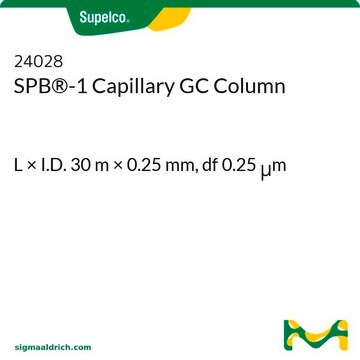MABS194
Anti-c-K-Ras Antibody, clone 234-4.2
clone 234-4.2, from mouse
Synonym(s):
GTPase Kras, K-Ras 2, Ki-Ras, c-K-ras, c-Ki-ras
About This Item
Recommended Products
biological source
mouse
Quality Level
antibody form
purified antibody
antibody product type
primary antibodies
clone
234-4.2, monoclonal
species reactivity
human
species reactivity (predicted by homology)
rat (immunogen homology)
technique(s)
immunohistochemistry: suitable
western blot: suitable
isotype
IgG2aκ
NCBI accession no.
UniProt accession no.
shipped in
wet ice
target post-translational modification
unmodified
Gene Information
human ... KRAS(3845)
General description
Immunogen
Application
Signaling
GPCR, cAMP/cGMP & Calcium Signaling
Western Blot Analysis: A representative lot from an independent laboratory detected c-K-Ras in primary human
lymphoid leukemia cell lysates, and in normal and HA-dynamin K44A mutant HeLa cell lysates (Omerovic, J., et al. (2008). Oncogene. 27(19):2754-2762.).
Immunohistochemistry Analysis: A representative lot from an independent laboratory detected c-K-Ras in non-small cell lung cancer cells (Volm, M., et al. (2002). Clin Cancer Res. 8(6):1843-1848.).
Quality
Western Blot Analysis: 1 µg/mL of this antibody detected c-K-Ras in 10 µg of SW-480 cell lysate.
Target description
Physical form
Storage and Stability
Analysis Note
SW-480 cell lysate
Disclaimer
Not finding the right product?
Try our Product Selector Tool.
Storage Class
12 - Non Combustible Liquids
wgk_germany
WGK 1
flash_point_f
Not applicable
flash_point_c
Not applicable
Certificates of Analysis (COA)
Search for Certificates of Analysis (COA) by entering the products Lot/Batch Number. Lot and Batch Numbers can be found on a product’s label following the words ‘Lot’ or ‘Batch’.
Already Own This Product?
Find documentation for the products that you have recently purchased in the Document Library.
Our team of scientists has experience in all areas of research including Life Science, Material Science, Chemical Synthesis, Chromatography, Analytical and many others.
Contact Technical Service








